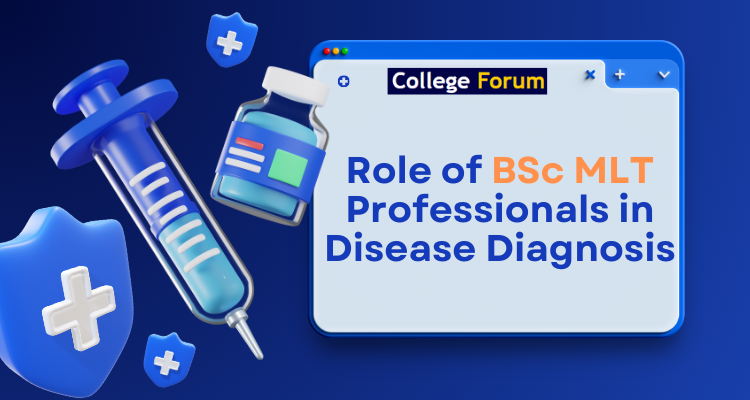College students Should focus on these 10 Skill Development
College students Should focus on these 10 Skill Development In college, students are exposed to a wide range of academic, social, and personal challenges. To navigate this transformative period successfully, it’s crucial for them to develop certain essential skills. These skills not only help students excel in their academic pursuits but also prepare them for future careers and personal life. In this blog, we will explore ten essential skills that every college student should develop to thrive both during their college years and beyond. Whether you’re just starting your college journey or are already on your way to graduation, understanding and cultivating these skills can make a significant difference in your experience and outcomes. From managing time effectively to developing critical thinking, each skill plays a vital role in shaping a well-rounded, successful individual. Let’s delve into these skills and learn how they can be beneficial for you as a college student. Skill 1: Time Management Time management is one of the most crucial skills for college students. With a packed schedule of classes, assignments, extracurricular activities, and social events, managing time effectively is essential for success. Importance of Time Management Effective time management allows students to prioritize their tasks, ensuring that they meet academic deadlines while also having time for leisure and relaxation. This skill helps reduce stress, improve productivity, and enhance academic performance. Tips for Time Management Create a Schedule: Planning a daily or weekly schedule helps students allocate time for classes, studying, and leisure activities. Using planners or digital calendars can be helpful. Set Priorities: Not all tasks are equally important. Students should identify their most important tasks and tackle them first. Avoid Procrastination: Procrastination can derail even the best plans. Students should tackle challenging tasks first and break larger tasks into smaller, manageable parts. Use Time Blocks: Allocating specific time blocks for studying or completing assignments can help students stay focused and productive. Impact on Academic and Personal Life Good time management leads to better academic performance, as students can dedicate sufficient time to their studies. It also leaves room for socializing, hobbies, and self-care, creating a balanced and fulfilling college experience. Skill 2: Communication Communication skills are vital for college students, impacting their academic and professional success. Being able to express ideas clearly, listen effectively, and engage in meaningful conversations is crucial in various aspects of college life. Importance of Communication Clear communication enhances classroom discussions, group projects, and relationships with professors and peers. It’s also a key skill in job interviews and professional networking, making it essential for career development. Tips for Improving Communication Practice Active Listening: Paying attention to the speaker, asking questions, and clarifying points enhances understanding and fosters meaningful dialogue. Be Clear and Concise: Whether in writing or speaking, students should aim for clarity and brevity to convey their messages effectively. Use Non-Verbal Cues: Body language, facial expressions, and tone of voice all contribute to effective communication. Being aware of these cues enhances interactions. Participate in Discussions: Engaging in class discussions or joining debate clubs can help students practice and improve their communication skills. Common Pitfalls to Avoid Interrupting Others: Interrupting or speaking over others can hinder effective communication and damage relationships. Overusing Jargon: Using complex language or technical terms unnecessarily can create confusion and hinder understanding. Ignoring Feedback: Constructive feedback helps improve communication skills. Students should be open to feedback and use it to enhance their abilities. Effective communication enhances academic performance, fosters strong relationships, and prepares students for professional success. By focusing on clear expression, active listening, and engaging discussions, students can significantly improve their communication skills. Skill 3: Critical Thinking Critical thinking is a fundamental skill for college students, aiding in academic success and real-world problem-solving. This skill involves analyzing information, evaluating arguments, and forming reasoned conclusions. Importance of Critical Thinking Critical thinking enhances students’ ability to understand complex issues, evaluate evidence, and make informed decisions. It’s crucial for academic work, where students are often required to analyze texts, formulate arguments, and solve problems. Developing Critical Thinking Ask Questions: Encouraging curiosity by questioning assumptions, arguments, and evidence helps develop critical thinking skills. Analyze Information: Students should practice analyzing information critically by examining sources, identifying biases, and evaluating evidence. Think Logically: Logical thinking involves structuring arguments coherently and identifying fallacies or inconsistencies in reasoning. Reflect on Perspectives: Considering different viewpoints and evaluating their strengths and weaknesses enhances critical thinking. Applications in Real Life Critical thinking is valuable beyond academics, helping students make informed decisions, solve complex problems, and navigate challenging situations in their personal and professional lives. It’s a skill that employers highly value, as it contributes to effective problem-solving and decision-making in the workplace. Skill 4: Networking Networking is a key skill for college students, opening doors to career opportunities, internships, and professional relationships. Building a strong network can provide valuable support and resources during and after college. Importance of Networking Networking connects students with professionals in their field, offering insights, advice, and potential job opportunities. It’s also valuable for finding mentors and building relationships that can benefit students throughout their careers. Effective Networking Strategies Attend Events: College events, seminars, and networking sessions provide opportunities to meet professionals and peers. Attending these events helps students expand their networks. Use Social Media: Platforms like LinkedIn allow students to connect with professionals, join relevant groups, and stay informed about industry trends. Join Clubs and Organizations: Joining student organizations related to their field of study helps students meet like-minded peers and professionals. Follow-Up: Following up with new connections after events or meetings helps maintain relationships and shows genuine interest. Impact on Career Opportunities Networking can lead to internships, job offers, and valuable advice from industry professionals. It also helps students stay informed about trends and developments in their field, enhancing their employability and career prospects. Skill 5: Adaptability Adaptability is an essential skill for college students in a rapidly changing world. Being able to adjust to new situations, challenges, and environments is crucial for success in college and beyond. Importance
College students Should focus on these 10 Skill Development Read More »









